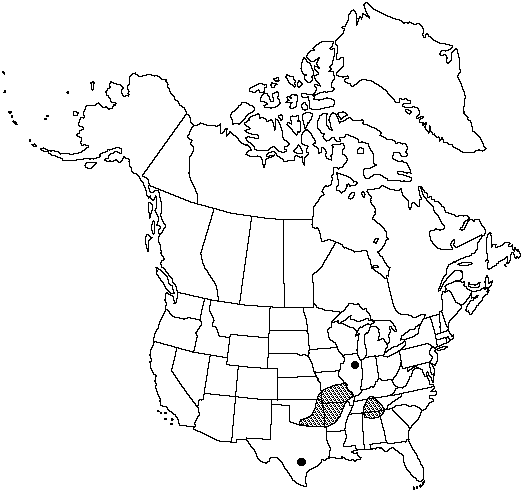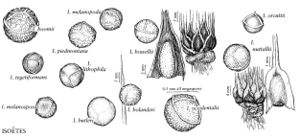Isoëtes butleri
Bot. Gaz. 3: 1. 1878.
Common names: Butler's quillwort
Treatment appears in FNA Volume 2.
Plants terrestrial. Rootstock nearly globose, 2-lobed. Leaves deciduous, dull green to gray-green or yellow green, pale toward base, spirally arranged, to 15(–30) cm, pliant, tapering gradually to tip. Velum covering less than 1/4 of sporangium. Sporangium wall ± brown-streaked. Megaspores white, (360–)480–650 μm diam., obscurely tuberculate; girdle obscure. Microspores light brown in mass, 27–37 μm, papillose. 2n = 22.
Phenology: Spores mature in late spring.
Habitat: Calcareous soil, limestone cedar glades, barrens
Distribution

Ala., Ark., Ga., Ill., Kans., Ky., Mo., Okla., Tenn., Tex.
Discussion
Population of Isoëtes butleri is locally abundant in open areas on alkaline soils saturated by water from early spring rains. The leaves yellow, wither, and disappear by late spring.
Selected References
None.
Lower Taxa
None.
